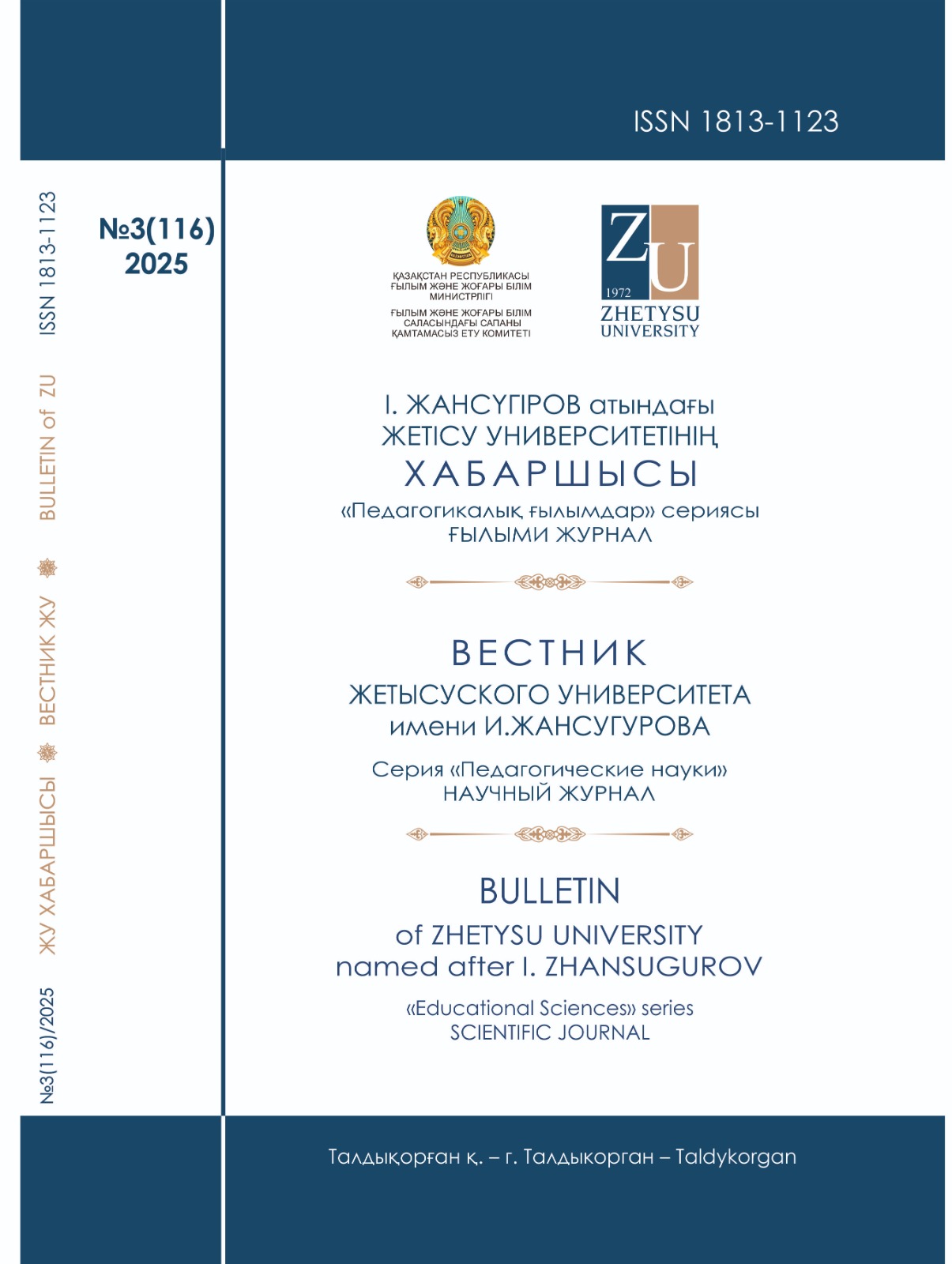THE VALUE PARADIGM OF THE 'RUKHANI ZHANGYRU' PROGRAM DISCOURSE AND THE OPPORTUNITIES FOR SHAPING YOUTH NATIONAL IDENTITY
DOI:
https://doi.org/10.53355/ZHU.2025.116.3.019Keywords:
Rukhani Zhangyru, public discourse, value, value orientations, content analysis, modernization of public consciousness, discursive strategiesAbstract
The article is devoted to the pedagogical analysis of the public discourse of the «Rukhani Zhangyru» program. The main objective of the study is to identify value orientations in official and public communications and to substantiate their educational potential in shaping the national identity of youth. The research is based on the idea that the modernization of public consciousness is not only a socio-political phenomenon but also an important methodological and substantive resource that can be effectively integrated into the system of education and upbringing.
The study focuses on determining the role of discursive strategies in shaping youth’s value orientations and on developing scientific foundations for the effective use of spiritual and cultural content in the educational process. The scientific novelty lies in offering a comprehensive pedagogical analysis of state ideological discourse, while the practical value is reflected in the applicability of results in educational practices, value-oriented programs, and methodological materials.
The methodological framework is based on content analysis: quantitative analysis was used to identify the frequency of lexical units and thematic markers, while qualitative analysis was aimed at interpreting them within political and cultural contexts. The results revealed that dominant concepts such as «national values», «education», «renewal», «unity», and «Kazakh language» play a significant role in shaping the value-based worldview of youth.
The potential for developing youth’s national identity is primarily determined by their orientation toward values rooted in historical memory and cultural traditions. Moreover, the concepts of «education», «language», and «unity» contribute to the recognition of their own «national self» and enhance competitiveness in the global context. The value paradigm of the program strengthens civic responsibility, fosters social cohesion, and reinforces national integrity, thus serving as an effective pedagogical tool.

 ҚАЗ
ҚАЗ РУС
РУС ENG
ENG
